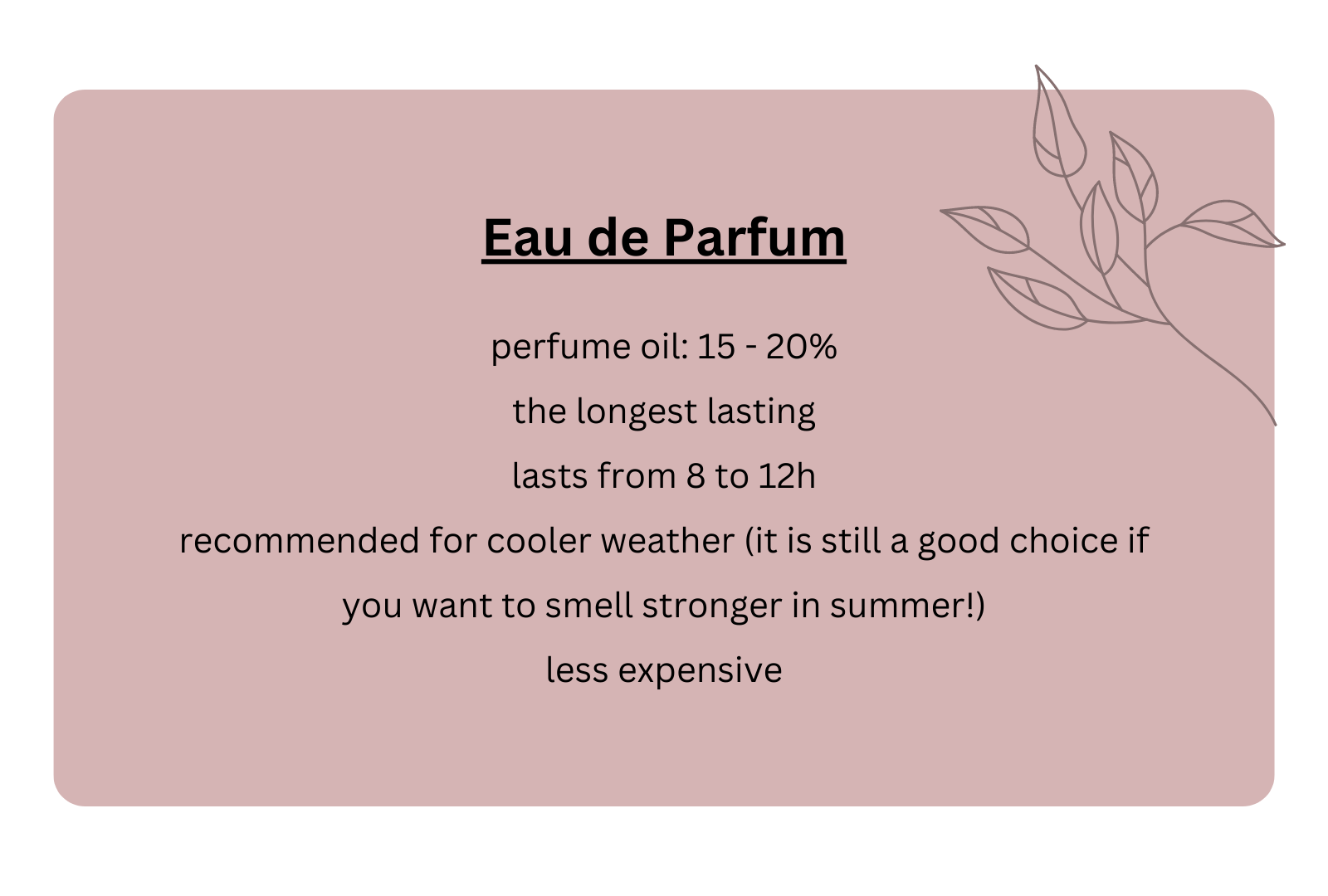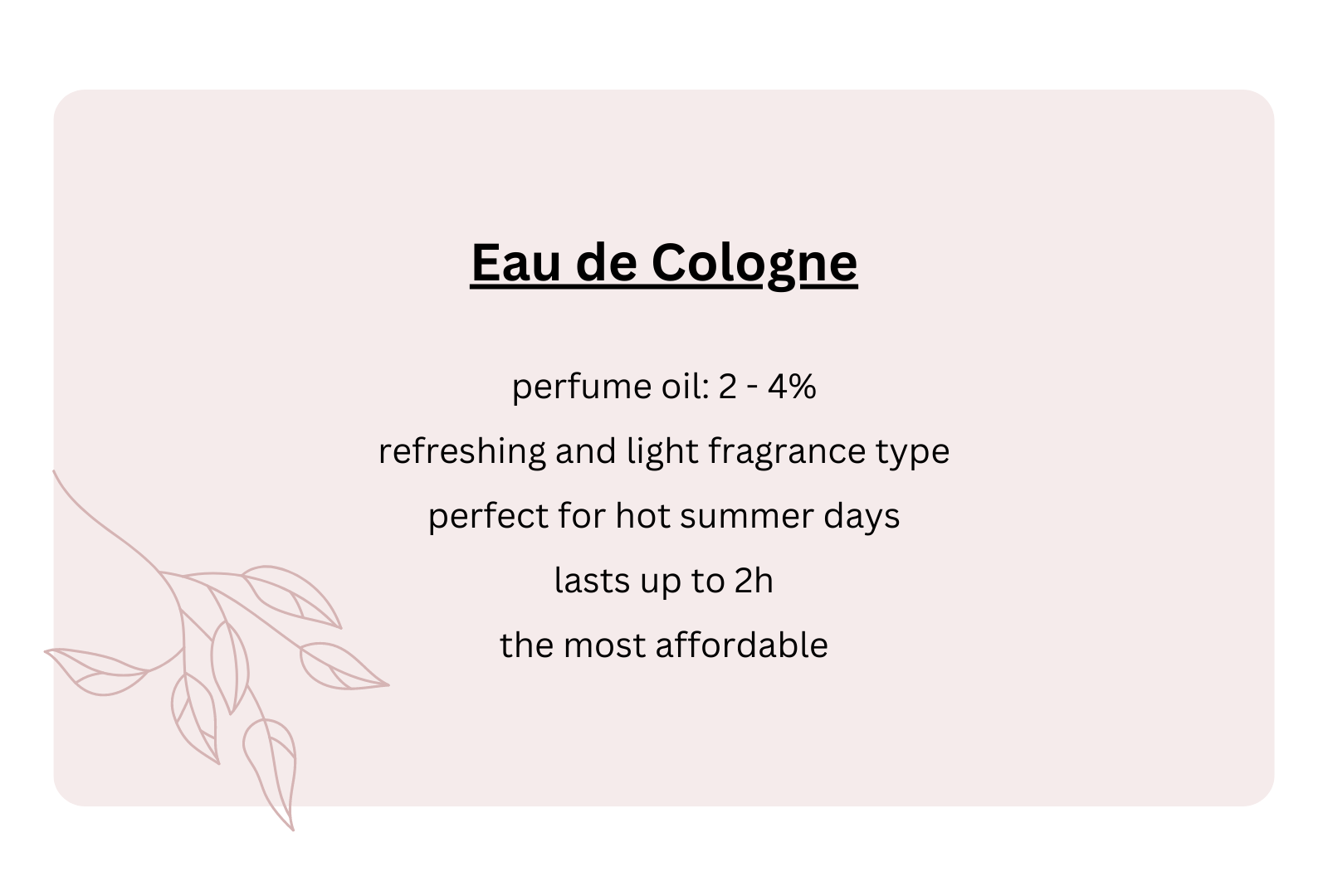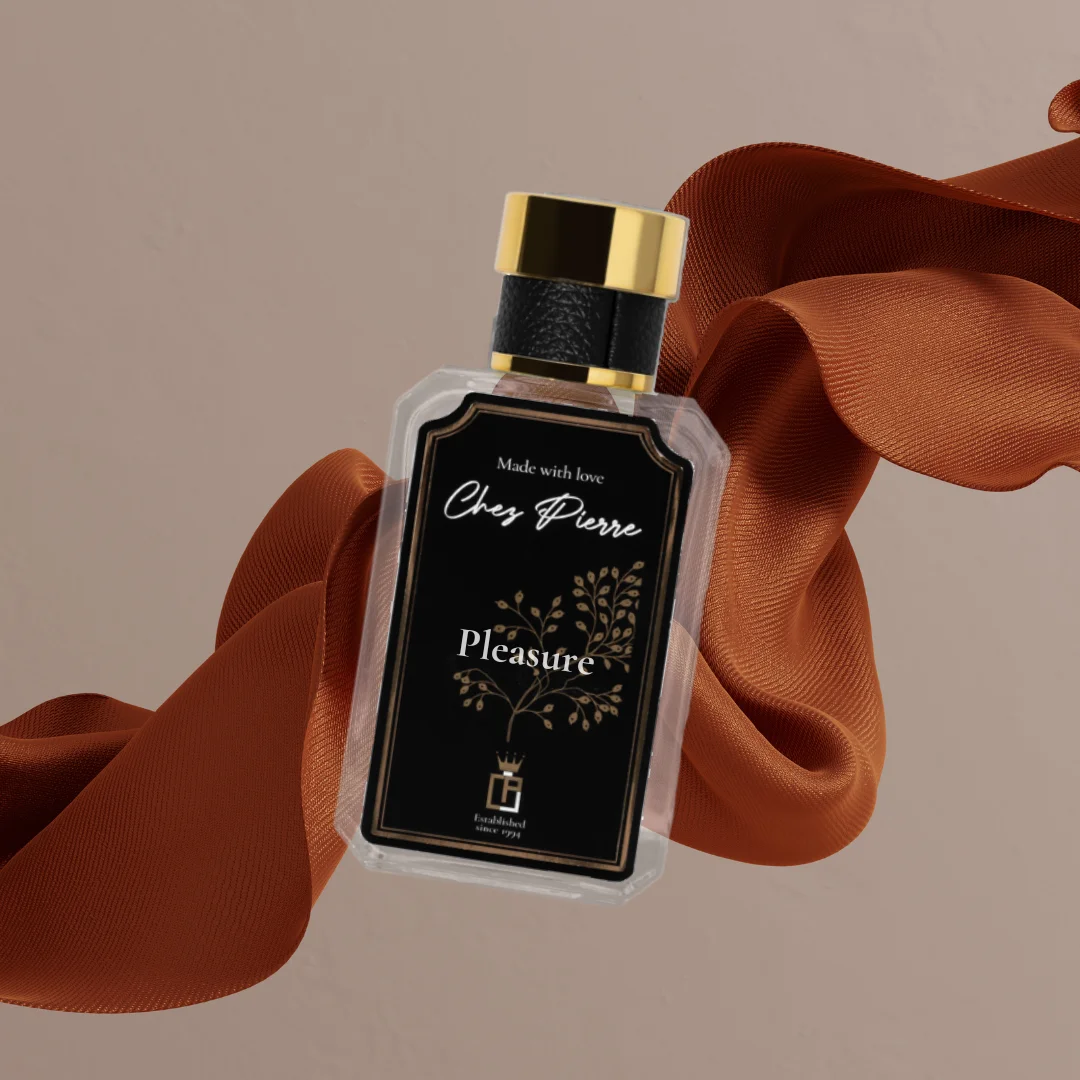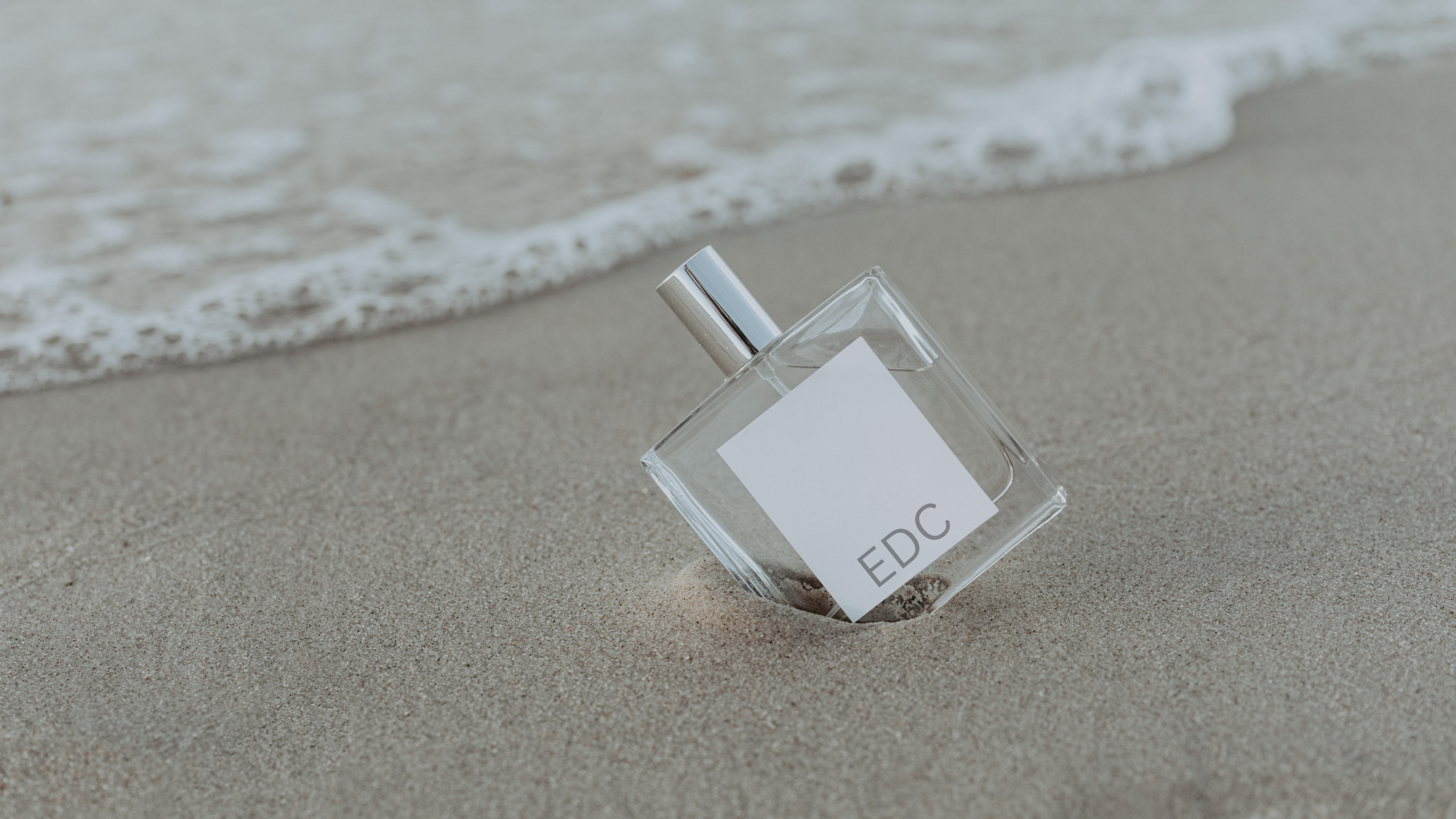
The Chronicles of Cologne Water: Reveiling A Scent Legacy
Eau de Cologne stands as a symbol of refinement, holding its own amidst a wide range of fragrance types.
What makes it so unique, you ask?
Its light, refreshing aroma, coupled with a centuries-old history, has cemented its position in the world of scents.
But let's delve deeper and understand this aromatic elixir of delight, its origins, and distinguishing features.
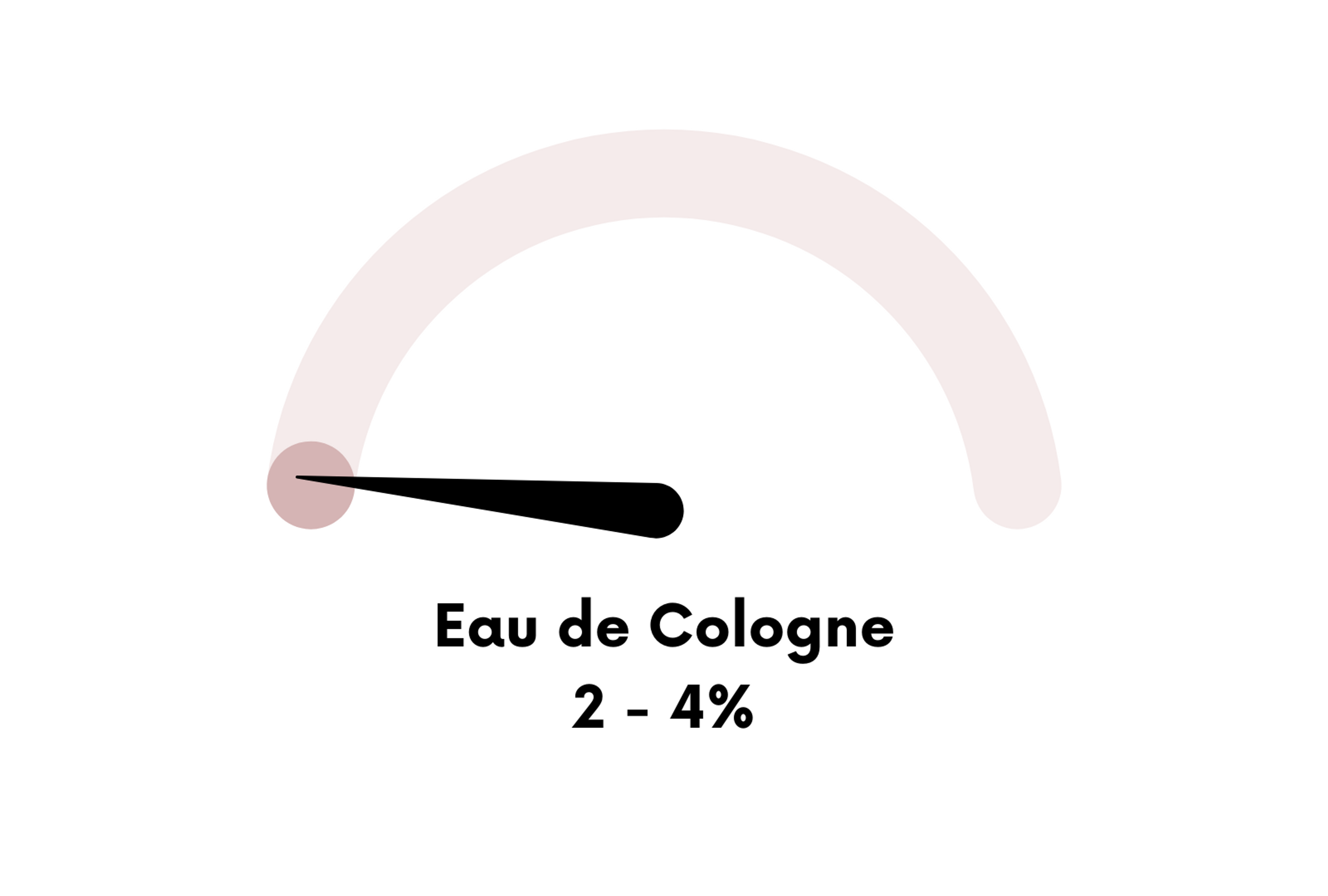
What is Eau de Cologne?
Eau de Cologne (EDC) is often simply referred to as Cologne.
Unlike its counterparts - the intense Eau de Parfum or the medium-intensity Eau de Toilette - Eau de Cologne carries a refreshing lightness, encapsulating citrus groves in a bottle.
This blend is artful, giving a sense of being in a sun-drenched Mediterranean orchard bursting with ripened fruits.
With a typically low concentration of fragrance, hovering around 2-4% is combined with alcohol and water. The lightness of Eau de Cologne is one of its most charming characteristics.
Cologne Eau can last on the skin for around 2 hours, though this duration can vary depending on several factors, such as the specific composition of the fragrance, skin type, and environmental conditions.
Because of its characteristics, Eau de Cologne is considered the most affordable perfume concentration on the market!
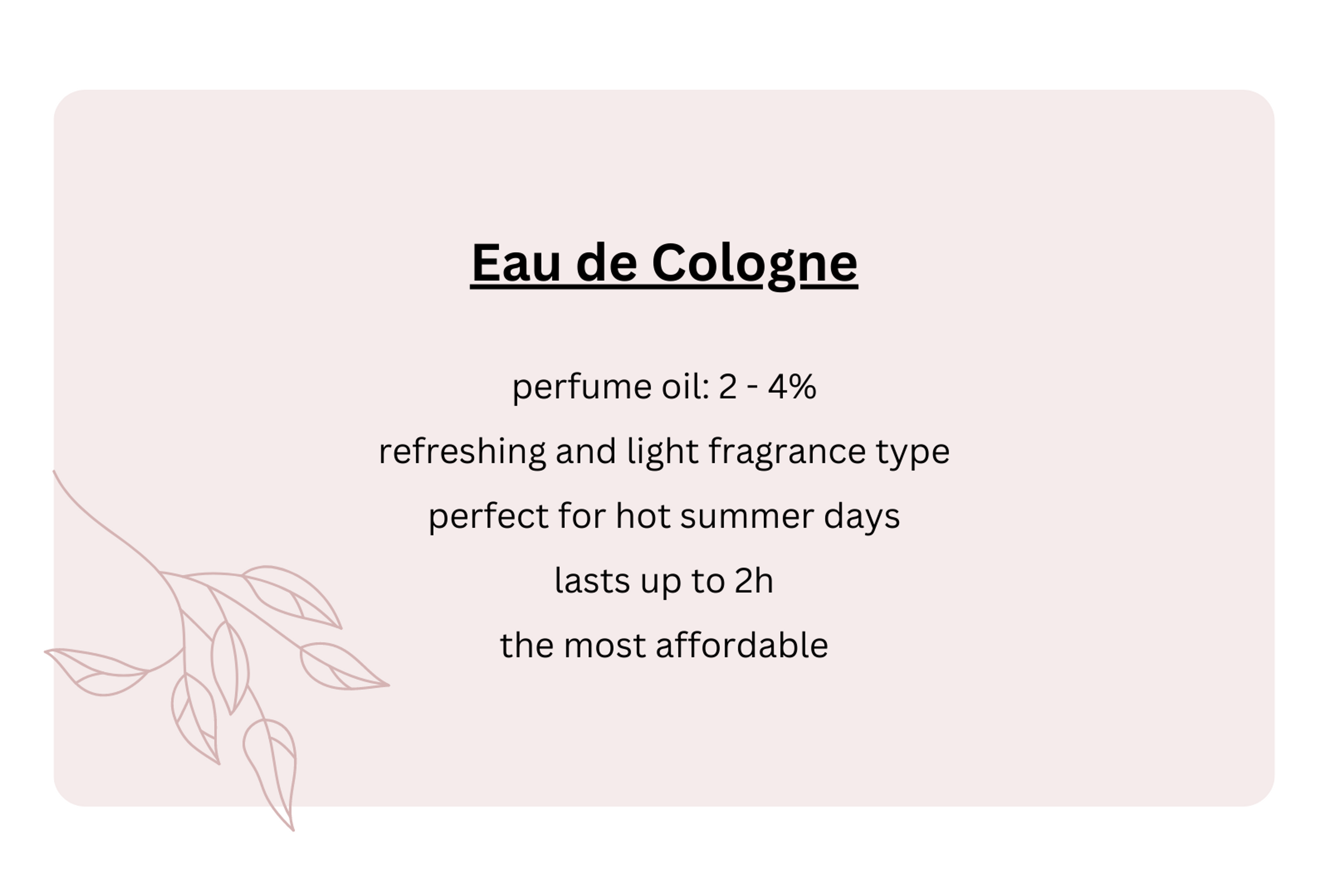
The Origines of Eau de Cologne
The tale of Eau de Cologne is as fragrant as its composition.
In the early 18th century, Giovanni (Johann) Maria Farina, an Italian perfumer, moved to Cologne, Germany, where he crafted a scent that reminded him of an "Italian spring morning".
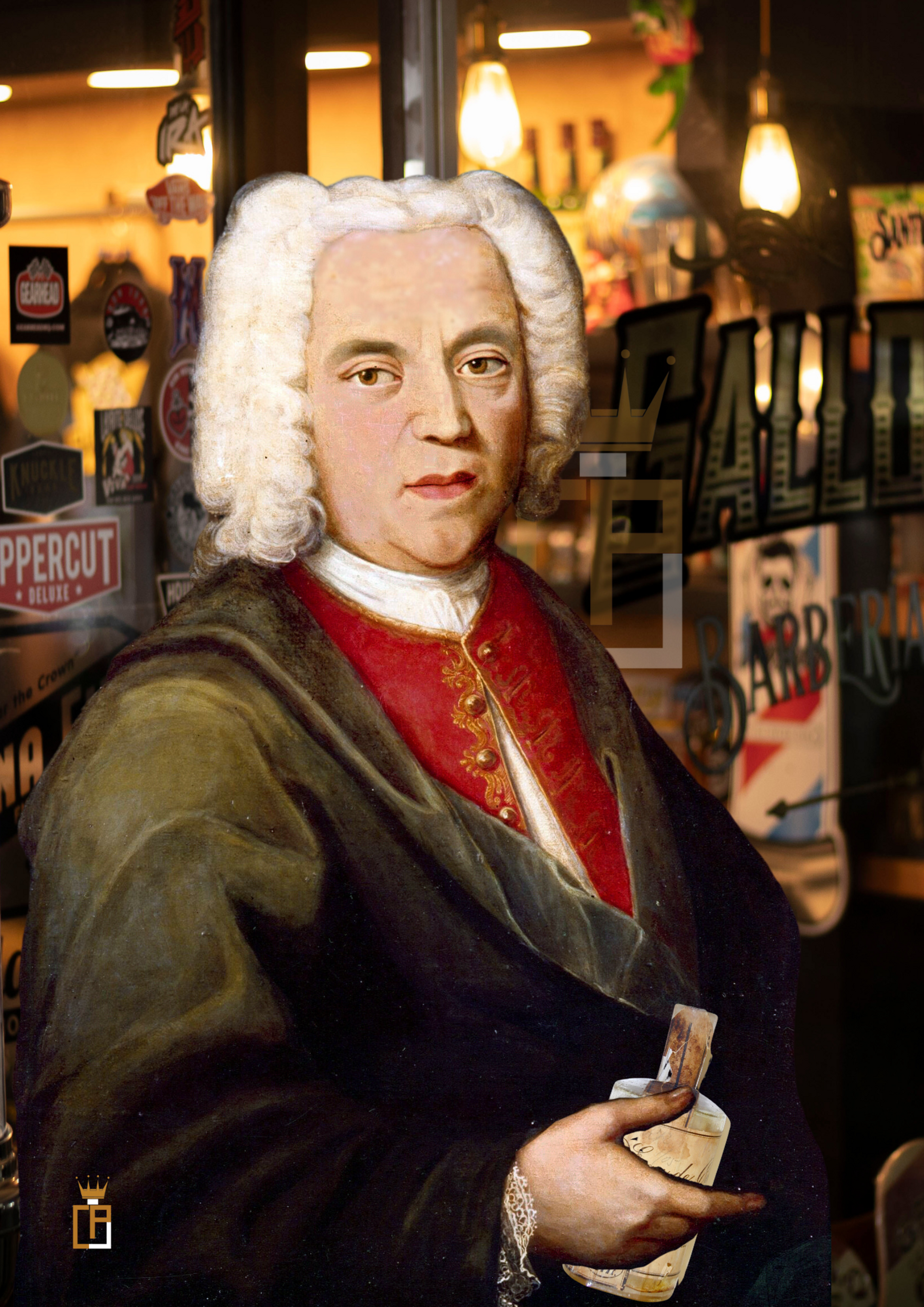
Giovanni Maria Farina, the founder of the Eau de Cologne
He named it ‘Eau de Cologne’, or ‘Water from Cologne’. It was a scent of blooming flowers, citrus fruits, and clean, fresh air – the world's first Eau de Cologne.
Farina's original formula was produced in 1709 and to this day remains a secret. It has the status of the world's oldest Eau de Cologne.
No. 4711: The Oldest Eau de Cologne That is Still Crafting
This fragrance was developed by Wilhelm Mülhens in 1799. The name "4711" comes from the house number assigned to the Mülhens family perfumery in Cologne.
It was also believed that Cologne Eau could ward off the bubonic plague, occurring at that time in Europe.
Interestingly, both Farina and Mülhens have had a long-standing legal dispute over the use of the term "Eau de Cologne".
However, it is widely accepted that Johann Maria Farina was the original creator of Eau de Cologne.
This is one of the oldest fragrances in the world, that is still producing!
Did you know that we have a very close of this legendary cologne?
Is Eau de Toilette the Same as Cologne Eau?
Many confuse Eau de Toilette and Eau de Cologne, often using the terms interchangeably. While both are indeed types of fragrances, they differ mainly in the concentration of essential oils.
Eau de Toilette has a slightly higher concentration, typically between 5-15%. Consequently and it lasts longer on the skin, up to 3 hours.
So, Eau de Toilette isn't a Cologne, although they're members of the same light-scented family.
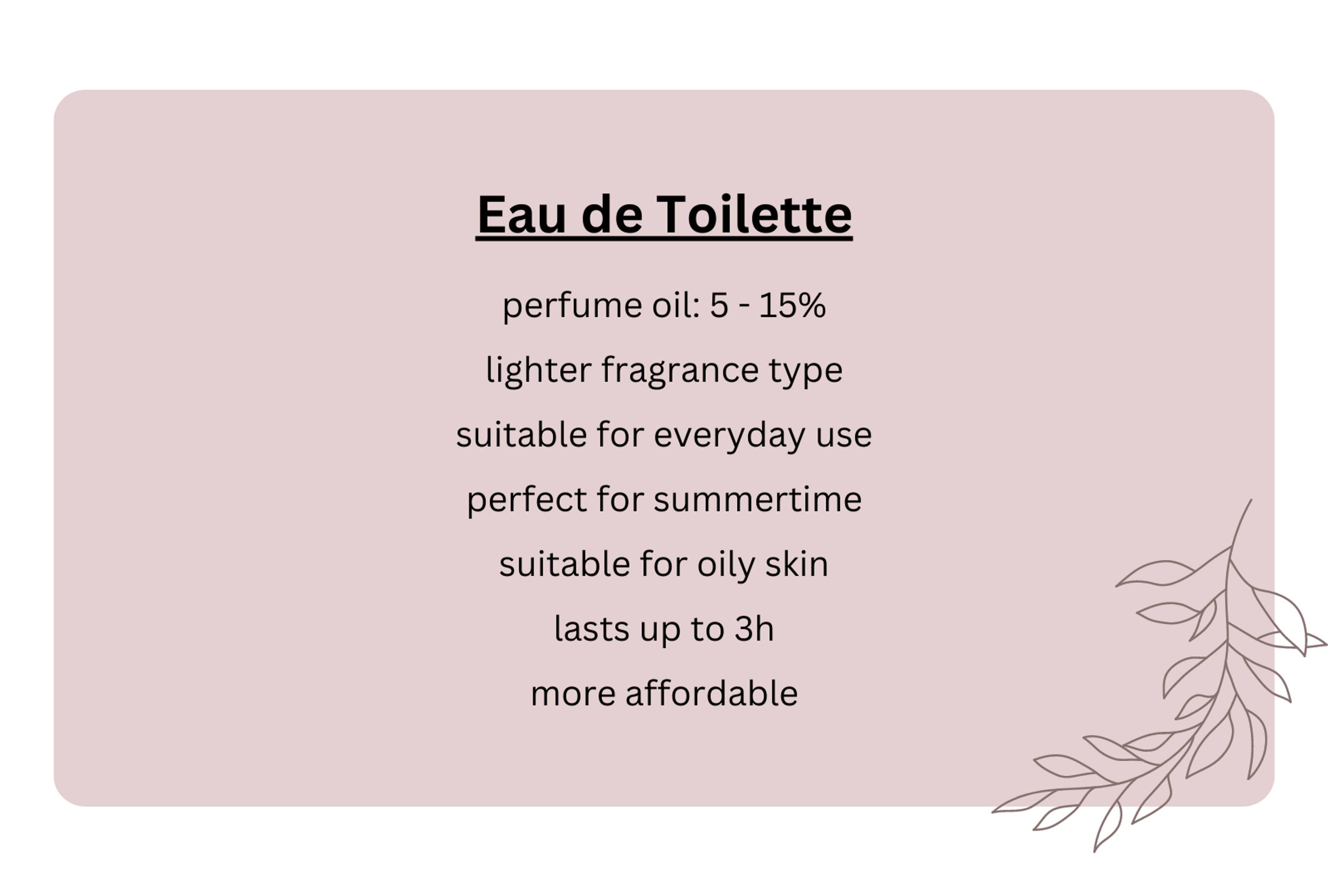
Eau de Cologne vs. Eau de Parfum: The main differences
When distinguishing between Cologne and Eau de Parfum, the primary differentiators are their oil concentrations, lasting power, and weather occasions.
Eau de Parfum, being a more potent concoction, boasts a higher concentration of fragrance oils, typically between 15-20%.
This composition ensures its scent lasts significantly longer, often up to 8 hours or more. You will get the best performance of Parfum Eau during the winter months when the weather is colder.
Conversely, Eau de Cologne, with its subtler concentration of 2-4% of perfume oil, may fade after around 2 hours and it is best to use it during hot summer days.
If you're after a more enduring fragrance experience, Eau de Parfum may be more suitable, whereas Eau de Cologne offers a lighter, more fleeting scent journey.
The Meaning of Cologne and Perfume
The terminology of the fragrances can often be confusing.
While "Perfume" and "Cologne" can both refer to fragrances in general, they have different connotations due to their historical and cultural origins.
- "Perfume" is often associated with a more concentrated, lasting scent and can be used for both men's and women's fragrances.
- "Cologne", on the other hand, is associated with lighter fragrances and is often used as a term for men's fragrances, particularly in North America.
Cologne falls under the larger 'Perfume' umbrella, as it is indeed a type of fragrant product designed to make us smell fresh.
When to Use Eau de Cologne?
Eau de Cologne occupies a particular niche.
Its light, ephemeral nature makes it the ideal choice for casual and light-hearted occasions where a heavier, more dominant scent might seem intrusive.
Especially fitting for warm climates and daytime use, Eau de Cologne provides a fresh and lively aura without being overwhelming.
Whether you're heading for a beach day under the sizzling sun or attending a summer brunch with friends, a splash or spritz of Eau de Cologne can keep you fresh and invigorated.
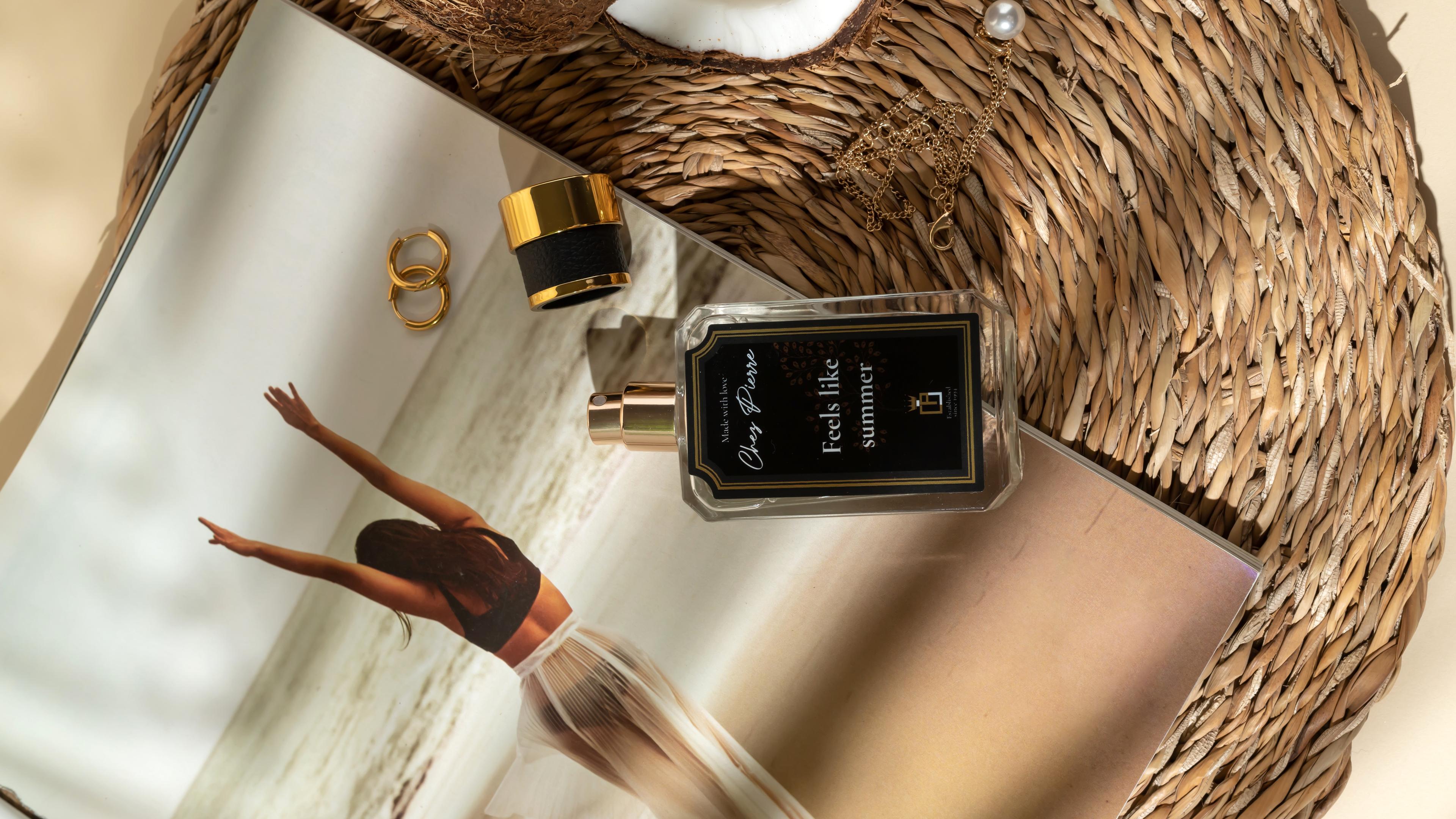
Can We Use Cologne as Aftershaive?
Yes, cologne can indeed be used as an aftershave. In fact, many men do exactly that.
However, it's important to note that while they may seem similar, colognes and aftershaves are not designed to serve the same purpose.
Aftershave is mainly utilized to relieve and clean the skin after shaving.
It often contains ingredients like aloe vera or other emollients to help soothe any irritation or nicks from the razor, as well as antiseptic elements to prevent infection.
Aftershaves typically have a lighter fragrance than colognes, and their scent evaporates more quickly.
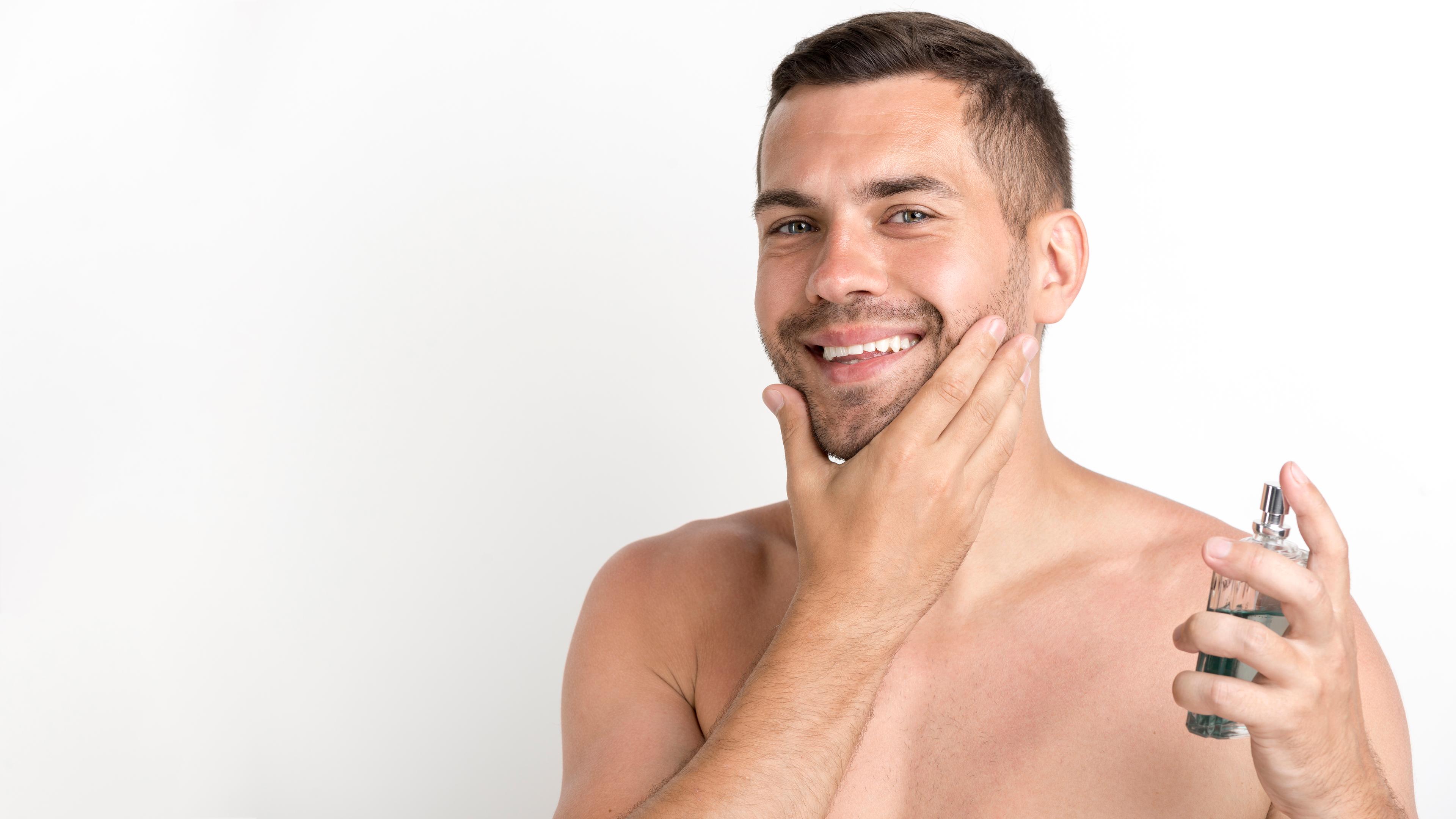
While you can use cologne after shaving, it won't have the same soothing and antiseptic benefits as an aftershave.
If your skin is irritated from shaving, applying cologne, which contains alcohol, may cause a stinging sensation.
Is Eau de Cologne for Men or Women?
Eau de Cologne knows no gender boundaries! Although traditionally associated with men due to its initial marketing towards the male demographic, its light, fresh, citrusy scent holds universal appeal.
Today, the market is flooded with Eau de Cologne specifically designed for women, often featuring subtle floral notes alongside the classic citrus to add a touch of femininity.
Best Colognes For Men
Our perfume dupes aim to emulate the sophisticated aroma profiles of these coveted fragrances, offering the same high-quality, luxurious experience at a more accessible price point.
Based on our experience, here are the most wanted colognes for men:
- Blue de Chanel Cologne Impression: A classic choice for any man, this cologne offers a crisp and elegant citrus scent, making it perfect for daily wear or special occasions.
- Versace Eros Cologne Impression: For a man who knows what he wants and isn't afraid to go after his dreams. Join the countless others who have fallen in love with this iconic fragrance!
- YSL Cologne Impression: Life brings a lot of doubts and insecurities, but are you ready to experience a fragrance that answers all your questions
- Dior Sauvage Cologne Impression: Robust, spicy, and aromatic. Discover this raw and natural scent while wandering through lime groves.
- Gucci Guilty Cologne Impression: Provoke the limits of satisfaction, listen to the whispering on your shoulders, and taste the guilt of your daring side!
Most Famous Female Colognes
What if we told you that you can experience the same sophisticated olfactory pleasure without breaking the bank?
Our carefully curated collection of fragrances is crafted with the aim to mirror the scent profiles of some of the most coveted perfumes on the market.
Using similar high-quality ingredients, our versions offer comparable olfactory experiences at a fraction of the price of the original formulations.
Based on our experience, here are the most wanted colognes for women:
- Our version of Flowerbomb by Viktor & Rolf: Celebrate your inner strength with this empowering fragrance. This scent will inspire you to be a confident and fearless woman ready to conquer the world!
- Our version of Black Opium by Yves Saint Laurent: Enter the timeless elegance with this dark and heavily sweet perfume. Its refined scent will leave you feeling chic and confident, perfect for seducing men under the lights of the nightclub!
- Our version of Gucci Bloom by Gucci: Celebrate the beauty of spring and dive into the infinite fields of blooming flowers and sunny days
- Our version of Baccarat Rouge 540: The woody scent releases a poetic alchemy and highly condensed olfactory signature. Evoking the floral and fresh delicacy of jasmine surely will exceed your expectations.
- Our version of Chloé Chanel: Experience the ultimate floral fantasy with this delightful aroma and transport yourself on the endless glades of blossoming flowers and sweet citrus.
How To Smell Good
Why Are Perfumes Expensive
How to Apply Cologne
Types Of Perfume
Eau de Parfum
Eau de Toilette
Eau de Cologne
Eau Fraiche
How to Make Perfume Last Longer
Where to Spray Perfume
How Is Perfume Made?
Best Niche Fragrance Houses and Perfumes
- Price Beyond Fragrance: Demystifying the Factors Behind Luxury Perfume Costs
- Explore The Best Niche Fragrance Houses and Perfumes You Must Try
- Why is Creed Cologne So Expensive? [Facts]
- Best Le Labo Santal 33 Dupes - Find Out Why Chez Pierre's Avenue 330 Is Your Next Obsession
- Portable Bottle
- Fragrance Booster
- Sample box
- Sample box
Latest Story
Private: Najbolji Ženski Parfemi za 2025: Trendovi, Sezone, Prilike i Saveti Kako do Magične Projekcije
Miris je mnogo više od parfema – to je emocija, uspomena i lični pečat koji ostavljate gde god da krenete. U 2025. godini, svet ženskih parfema spaja tradiciju i inovaciju, donoseći kompozicije koje osvajaju srca i slave vašu jedinstvenost. Od sezonskih mirisa koji prate promene prirode, do večnih klasika koji odolevaju vremenu, svaka kap […]
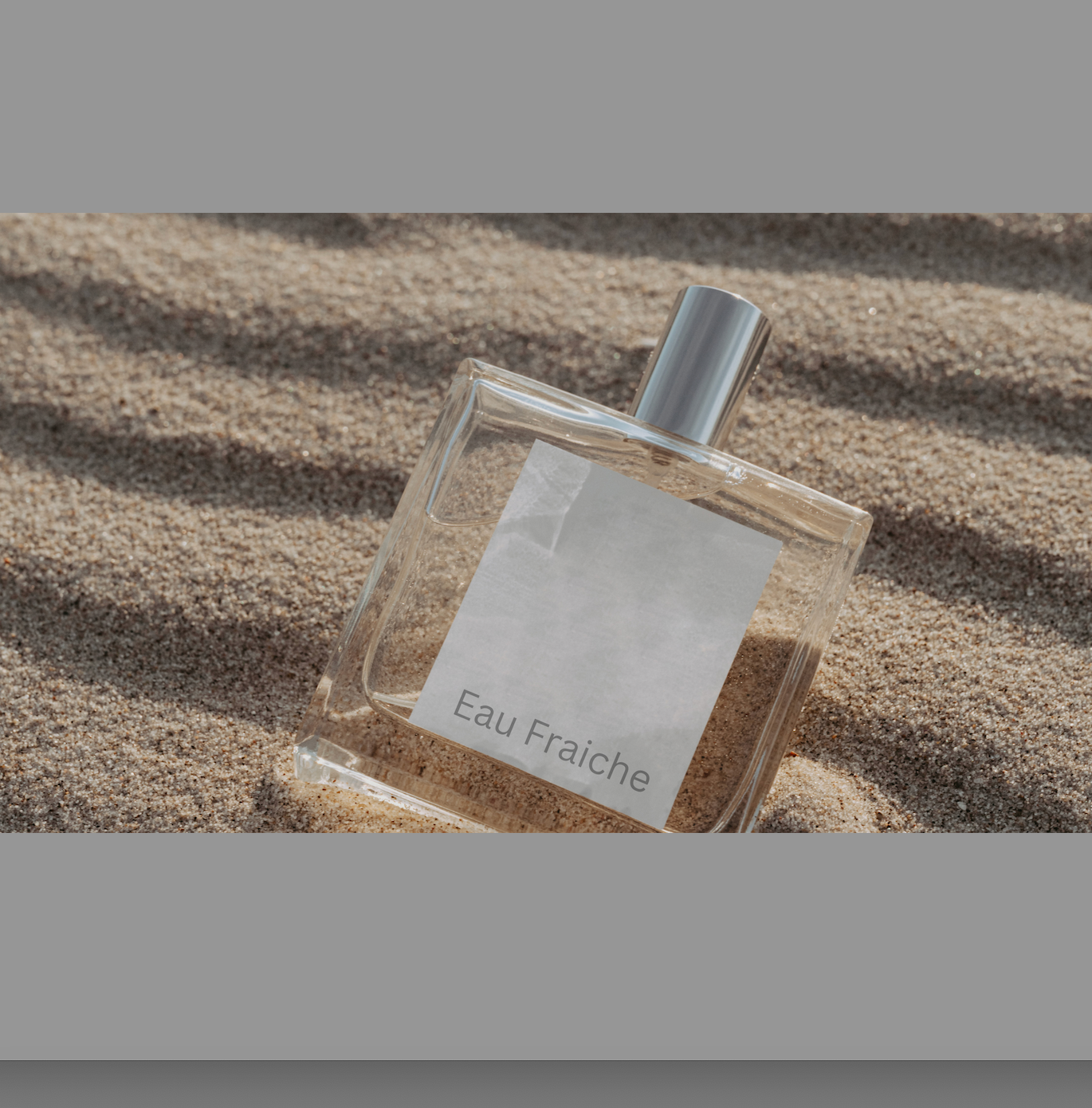
Luxury within Reach: The Eau Fraiche Effect in the Cologne Cosmos
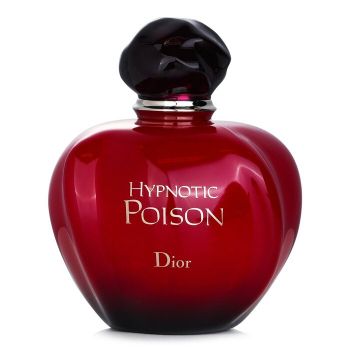
Best Dior Hypnotic Poison Perfume Dupes - Let Chez Pierre's Coconut Dream Be Your Seductive Touch
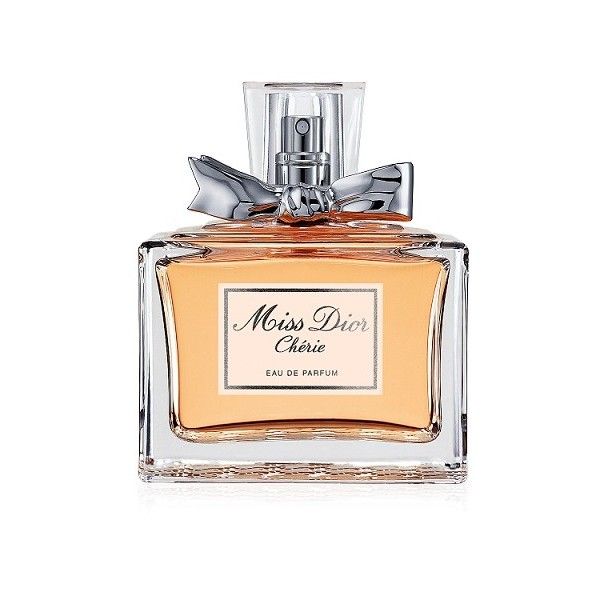
Best Miss Dior Cherie Dupes - Let Chez Pierre's Madam Cherry Unleash Your Unique Way Of Seduction
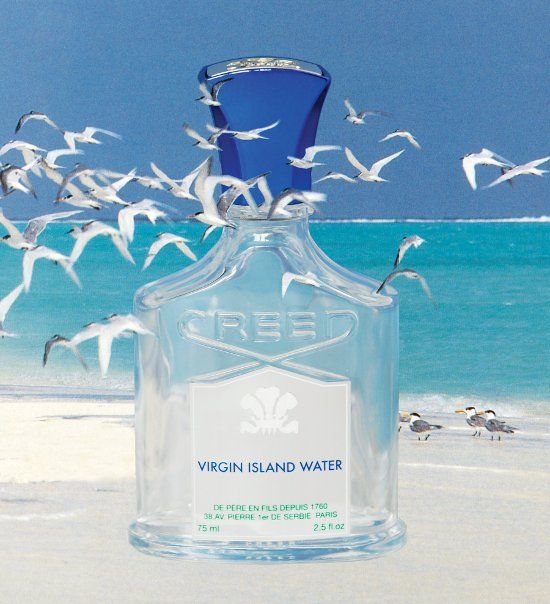
Best Creed Virgin Island Water Clones For Luxury Touch - Let Chez Pierre's Feels Like Summer Be Your Luxury Daydream

